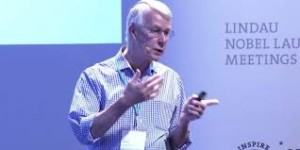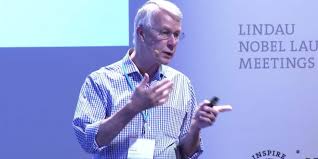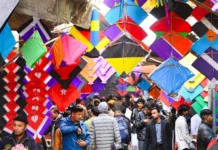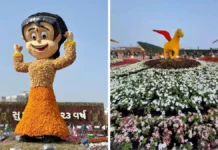 PANAJI: UK-based scientist Richard J Roberts, who won the Nobel Prize in physiology in 1993, criticized the “anti-GMO people” today and said politicians should listen to the scientists and not the anti-science people, who speak “nonsense” and “tell lies”.
PANAJI: UK-based scientist Richard J Roberts, who won the Nobel Prize in physiology in 1993, criticized the “anti-GMO people” today and said politicians should listen to the scientists and not the anti-science people, who speak “nonsense” and “tell lies”.
He also said that he would “organize” support of Nobel laureates on the Genetically Modified Organism (GMO).
Roberts was here to participate in the three-day-long Nobel Prize Series organized by Nobel Media, a wing of Nobel Foundation, which bestows the coveted award.
“My aim in life is to convince politicians that science is important. They should listen to the scientists and not listen to the people who are anti-science, who are people who speak lot of pseudo science,” Roberts told PTI.
“At the moment, one of the things that is important is GMO…these are the future of agriculture,” he said.
“There is so much nonsense spoken by anti-GMO people, by Greenpeace activists, it is not just true…Most of what they say is not true. Yet, they are having a big effect on people and politics,” he said.
Roberts said he would be “organizing” Nobel laureates to support the GMO and explain it (GMO) because “it is very important because it can help countries”.
Talking about India’s GMO scenario, he said, “Here in India, the GMO cotton that is produced makes a huge difference and there are many other things that can be done in the country too.”
“When they are against GMO, they tell lies…they are not honest in environment protection. This is very disappointing. They are killing people, literally they are killing people, it’s terrible,” he said on the anti-GMO lobby.
The Nobel Prize winner, who has been touring the world addressing students and academicians, said researchers from the developing nations who are trained abroad should get an opportunity to go back to their homeland and work for their country.
“It takes lot of time…and the opportunity to do research depends upon the availability of money. In many developing countries, it is not just that amount of money is available for the researchers,” he said.
“Quite a lot of good people leave the country and go abroad and work in laboratories abroad and make interesting discoveries abroad. Lot of people who do not get an opportunity to go back to their homeland, make discoveries outside their home country,” he added.
“One of the things I would like to see is that there should be opportunities for people to get trained abroad, but they should get back to their countries, which will make a difference in their home countries,” Roberts said.-PTI







